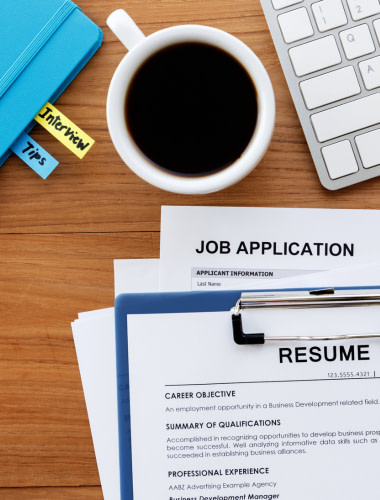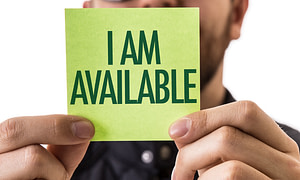This article is recommended for individuals near the beginning of their careers
Introduction
Having spent a long time in the recruitment industry, I've come to understand the skills around creating a compelling resume. My years of experience have shown me that we often emphasise our educational background, work history, and skill set to present ourselves effectively.
However, have you ever thought about the significance of hobbies in shaping a rounded professional persona?
Throughout my career, I've encountered varying stances regarding the inclusion of hobbies in resumes, and I've found it valuable to explore the potential advantages they offer.
In this blog post, I will go into the rationale behind the inclusion of hobbies on your resume, outlining how they can strategically set you apart from other candidates. Over time, I've seen the positive impact that showcasing hobbies can have, and I'm eager to share insights on why it can be a great strategy.
If you're interested in seeing examples of how to incorporate hobbies into your resume, simply click the button below.


Showcasing your personality
Employers today are not only interested in your professional skills but also in your personality and how well you fit within their company culture.
Including hobbies on your resume offers a look into your personal interests and passions, helping employers gauge your compatibility with the team.
It can create talking points during interviews and provide a better understanding of who you are beyond your professional achievements.
Highlighting transferrable skills
Hobbies often involve various activities that can develop and hone transferable skills.
For instance, participating in team sports can show your ability to collaborate and work well in a team, while creative hobbies like painting or photography demonstrate your attention to detail and creativity.
Including these hobbies on your resume allows you to show a broader range of skills that can be applied to different professional contexts.
For more information about transferable skills, click the button below to read our guide.


Demonstrating commitment & dedication
By showcasing long-term engagement in hobbies, you show your commitment and dedication to a particular interest or pursuit.
Employers appreciate individuals who have the discipline and perseverance required to pursue a hobby consistently over time.
Whether it's learning a musical instrument, volunteering, or engaging in community activities, these hobbies reveal your ability to manage time, set goals, and follow through - a valuable trait in the workplace.
Differentiating yourself from the competition
In a competitive job market, it's important to find unique ways to stand out from other candidates. Including hobbies on your resume can make you memorable to recruiters and potential employers.
While your qualifications and experience may align with other applicants, your hobbies can set you apart by giving an extra dimension to your profile. By presenting a well-rounded picture of yourself, you give employers a reason to remember you long after the interview process.


Showcasing relevant interests
Certain hobbies may align with the industry or position you're applying for.
For instance, if you're seeking a role in marketing, highlighting hobbies like content creation, social media management, or blogging can show your interest and knowledge in the field.
Similarly, if you're applying for a role that requires analytical thinking, showcasing hobbies such as chess, puzzles, or coding can show your problem-solving abilities.
By including hobbies that are relevant to the position, you can make a compelling case for your suitability.
Conclusion
While the decision to include hobbies on your resume ultimately depends on your personal circumstances and the nature of the job you're pursuing, there are good reasons to consider their inclusion.
Hobbies can offer insights into your personality, highlight transferable skills, show commitment, and help you stand out from the competition.
By presenting a well-rounded professional image, you increase your chances of connecting with employers on a deeper level and landing your dream job.
So, next time you update your resume, don't overlook the power of your hobbies.
For more information on this topic, I encourage you to read LinkedIn's article on whether you should list hobbies on your resume.


Are you looking for a job?
Now that you better understand whether it is good to include hobbies in a resume, you should take a moment to check our current vacancies page.
At 11 Recruitment, we have a range of white-collar temp and perm jobs available. We're always on the lookout for top talent to place with our clients, so we encourage you to apply for any positions that are of interest.
If none of our current vacancies are right for you, you should register for job alerts. Then we’ll be able to notify you when we receive a position that matches your profile.

What are your thoughts?
I'd love to have a conversation with you about this topic - please leave a comment below if you have any thoughts or opinions 🙂
Christian Madsen
Managing Director of 11 Recruitment




















